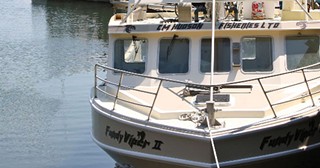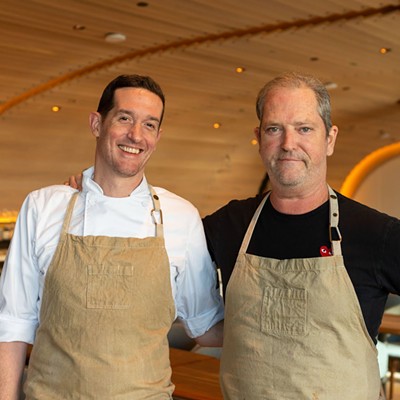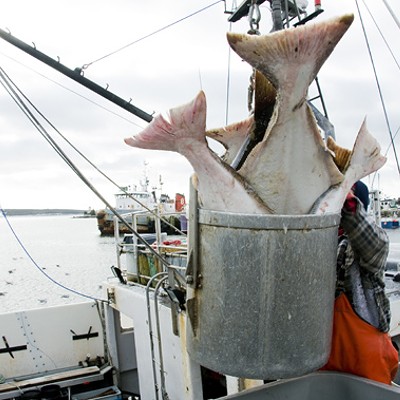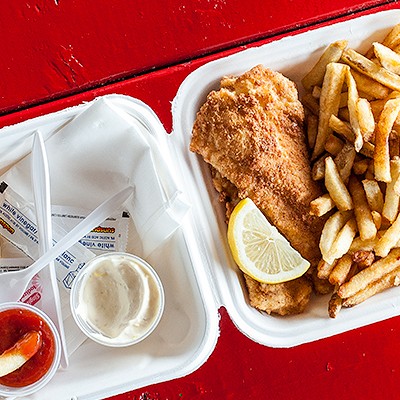Finding fresh seafood is no easy feat in our province, despite being almost entirely surrounded by water. We export over 75 percent of our seafood, and seafood in grocery stores locally has switched hands so many times that it might have been dead for a week by the time it lands on your plate. But luckily for seafood lovers, five fishers in Digby County have teamed up to bring fresh, sustainably caught fish to Halifax.
Off the Hook is the first community supported fishery to spring up in Atlantic Canada. The idea is that people in Halifax become members of the fishery, purchasing a share of the catch in advance. The return for one's investment includes several pounds of whole groundfish per week, and fish so fresh it was swimming in the Bay of Fundy the day before.
Off the Hook cuts out the middle man, putting more money in fishers' pockets and providing consumers with a product they can trace. "You know exactly where that fish came from. "You know how it was caught and you can talk directly to the fishermen to find out more," says Sadie Beaton, the coordinator of Off the Hook. Beaton works at the Ecology Action Centre, a non-profit organization helping the Digby fishermen get the new fishery off the ground.
Most of the groundfish you'll find at your grocery fish counter have been caught using dragger nets. Off the Hook fisher Beau Gillis uses low-impact bottom hook and line gear because he'd like to continue fishing for years to come. While hook and line only catches a small portion of the fish on the ocean bottom and has virtually no bycatch, dragger nets scrape up most of the aquatic life and habitat in their path. "It takes a really long time for that habitat to grow back so that fish can live there again," says Beaton.
Beaton hopes Off the Hook will serve as a model for fishing communities in desperate need of revitalization. Beaton is from Canso, a small fishing community in Guysborough County, and Gillis is from Freeport in Digby County. Both are still seeing the devastating effects of over-fishing, as the '90s collapse of the groundfish fishery caused wide-spread unemployment in their home communities.
"This community is gutted," says Gillis about Freeport. "It's depressing to drive around and see all the for sale signs and now there's no work."
Gillis began fishing with Off the Hook because it was the only way he could earn a living wage as a small independent fisherman. Small fishermen can end up spending all their income on expenses. These include fuel, bait, license fees, Groundfish Association fees, paying a dockside monitor, to install a monitoring device so the Department of Fisheries and Oceans will know where each boat is and paying the crew.
At the end of the day, you can end up "paying to fish," says Gillis. But fishing with Off the Hook should net Gillis three dollars a pound for his fish. It's triple the price he'd get at the wharf and allows him to actually earn money after expenses.
Off the Hook will start delivering fish to a drop off point on Tower Road as of July 22 (see offthehookcsf.ca for more details). Half-memberships cost $260 for eight weeks, landing members four to six pounds of fish a week at roughly $6.50/lb. Beaton hopes consumers will understand that seasonality doesn't simply apply to produce, but to seafood too.
Off the Hook will stop delivering fish in the winter, when it's too dangerous for fishers to go out. Gillis admits starting the first community supported fishery in Atlantic Canada is a risky endeavour, but says he's seen thesupport of his community so far. "I hope it catches on and people can keep their money at home," he says.
Off the Hook CSF
Half Share: $260
Full share: $500
Fish are fresh,locally caught, gutted and on ice. To learn more, visit Offthehookcsf.ca or call 442-0999.
















